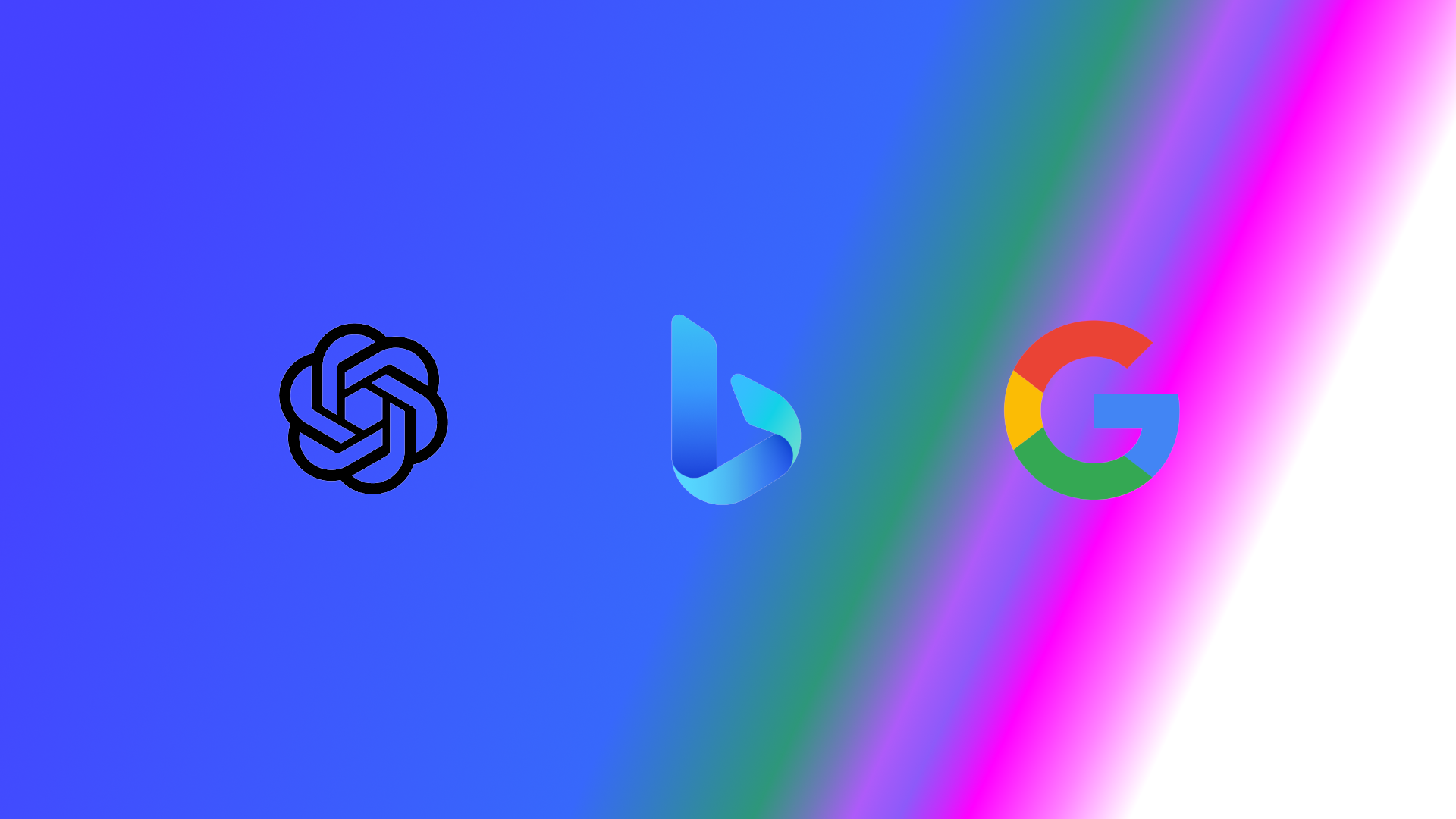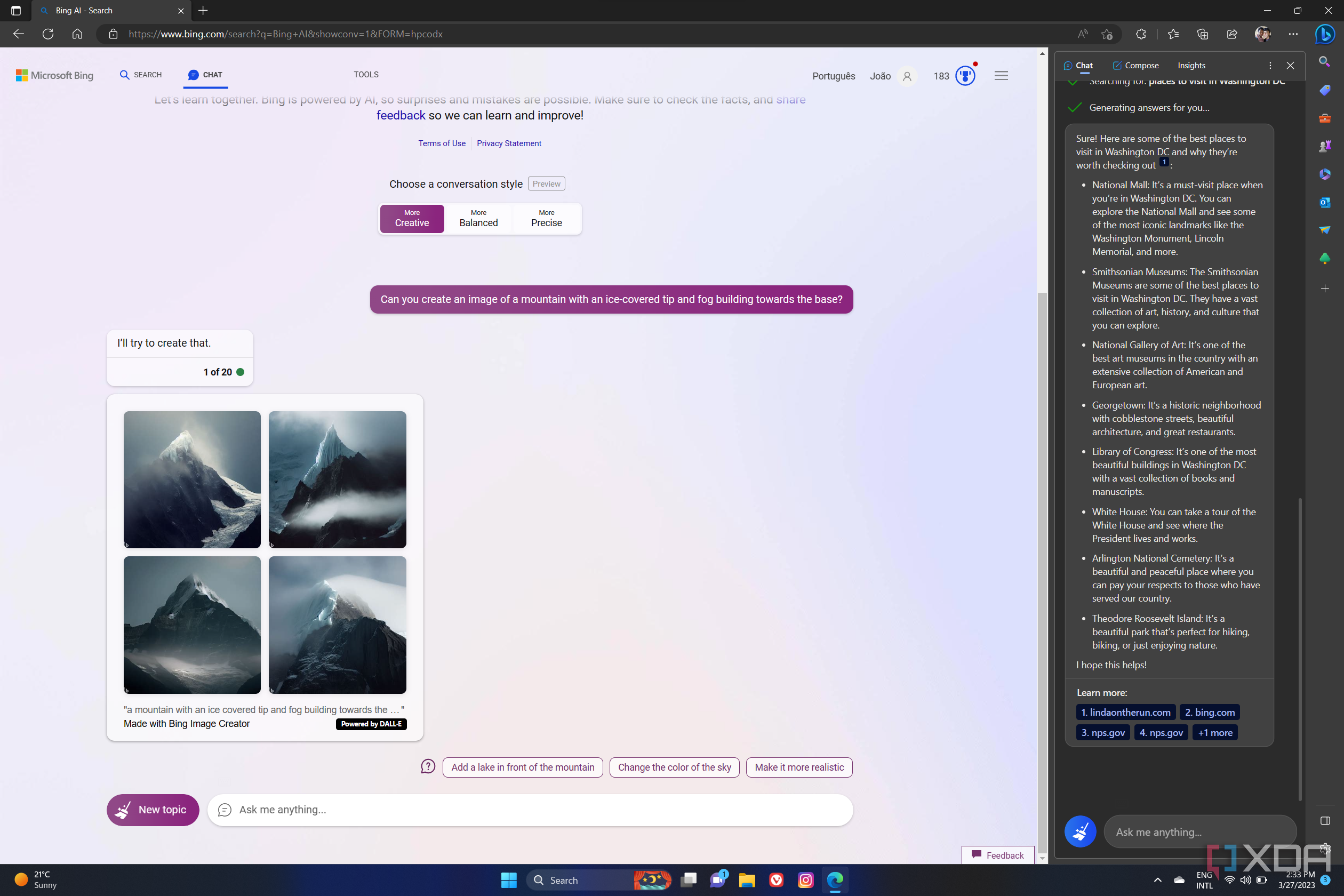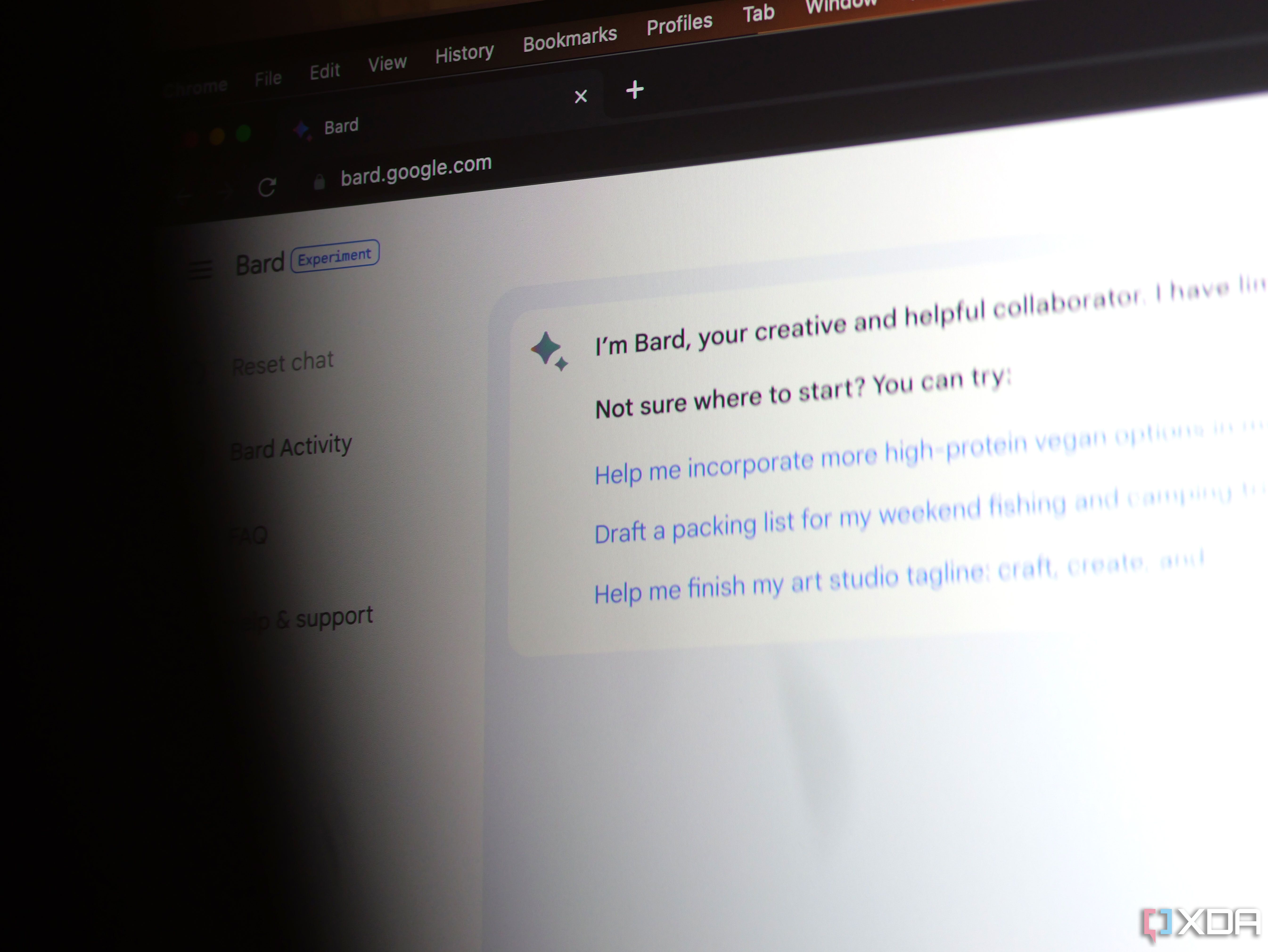ChatGPT, Bing Chat, and Google Bard are all part of a wave of generative AI models that can take your text prompts and give you unique outputs, which can help you generate emails, process information, or research online. However, with all of these systems being similar, it's hard to pick which one is actually the best. So, let's analyze the differences between the big three, and which is better based on the situation.
However, it's important to note first that none of these AIs can think. They're merely algorithms trained to chain words and sentences together based on what they've learned. No actions are being undertaken by these generative models. They're just generating an output based on the processed input.
In that same vein, when an AI goes off the rails and starts insulting the user, it's not because it genuinely harbors resentful feelings. The internet is a vast place, and even thinking back to Tay from Microsoft years ago, training an AI on user-generated content online will eventually lead them to find negative corners of the internet and learn from them. As a result, bots know to be mean because humans can also be mean. It's not necessarily the case that Bing Chat is the second coming of Skynet.
What is GPT?
Before talking about all the various chatbots, it's important to recognize what Generative Pre-trained Transformers (GPT) are. These are a family of language models developed by OpenAI, which are trained on huge amounts of text data and are fine-tuned for natural language processing (NLP) tasks.
The most recently available version of GPT, called GPT-4, powers Bing Chat and can be accessed with ChatGPT Plus. OpenAI hasn't gone into too much public detail about it yet, but GPT-3.5, which kickstarted the AI text generation craze and powers ChatGPT, was trained on 570GB of plaintext collected from English Wikipedia, books, and web crawling.
ChatGPT
The big one that everyone knows is ChatGPT, is arguably what got the ball rolling on AI text generation. The most recent iteration is based on ChatGPT-3.5, which is widely accessible and free for everybody on OpenAI's website, though sometimes you may need to wait for servers to free up to generate responses if you're on the free plan. ChatGPT Plus is a paid tier that gives you access to GPT-4, though as we'll get to later, you can also access GPT-4 through Bing Chat.
The biggest downside of ChatGPT was its lack of access to the wider internet, which is why Google Bard and Bing Chat were more sensible choices for someone looking to do research. However, OpenAI announced plugins that can help ChatGPT interface with the wider internet. It greatly expands its capabilities to be more competitive in this space, though there's currently a waiting list for plugin access.
From my own personal usage, ChatGPT is still one of the best in the game. It's easy to use, open to everybody, and great for text generation in general. It's not the best for research (as its training data doesn't include anything from the last year), but it's a solid foundation to use when you just want to get something done quickly.
Bing Chat
Bing Chat is one of the free ways you can access GPT-4 right now, and you'll get approved immediately when you sign up for the waiting list. It can access the rest of the internet and sources what it finds, so that you can verify the authenticity of the information it's providing. Sure, not everyone will check the citations, but it's better than ChatGPT, which spits information at you with no way to see where it came from. You can also choose a conversation style, asking it to be more creative, more balanced, or more precise. Even better is that Microsoft has now incorporated image generation into Bing Chat, meaning you don't have to pay for Midjourney or set up a local instance of Stable Diffusion.
Bing Chat isn't perfect, though, and there are many limitations you need to be aware of. Because of several debacles where Bing would insult its users or turn a bit... weird, Microsoft has imposed daily chat limits. There are limits on the total number of queries in a day and the total number of messages in a conversation, which limits the ability for Bing Chat to go off the rails. The limit is also presumably for some cost-saving reasons on Microsoft's end. You also need to use Microsoft Edge or the mobile Bing app if you want to use it, though there are ways around that if you want to mess around with replacing your browser's user agent.
The strengths of Bing Chat are its slightly more advanced language model, and you can also choose a conversation "style" to be more precise, more creative, or a balance of the two. However, it falls a bit behind because of its limitations. Bing Chat is, most of all, an extension to its search engine, so it's best used for research. This differs wildly from Google's approach.
Google Bard
From the get-go, Google Bard has one major limitation: availability. You can only use it if you live in either the U.S. or the U.K., so you're out of luck if you live elsewhere. It'll likely be expanded soon enough, but until then, you'll need to resort to using one of the other generative models if you want to engage with a chatbot.
The difference with Google Bard is that Google is using entirely different technology to power its chatbot, so it's not GPT-based like the others. It's an extension of Google's in-house LaMDA that the company teased a couple of years ago at Google I/O, but from what some users saw at the start, it seemed to be a bit behind what the others are doing currently. It's clear that the company is experiencing some growing pains when it comes to misinformation and fact-checking, but the situation will likely improve as Google works on competing with growing competition from Microsoft and OpenAI.
Google, surprisingly, is on the back foot. It doesn't advertise Bard as an extension of its search but rather as a "complement" to it. If the company felt confident in Bard, it would certainly advertise it as a search engine in the same way that its rival Microsoft is doing. Google, for once, is behind the curve, but it remains to be seen whether it can catch up or not. Since its launch, though, we've seen Bard improve leaps and bounds, with the company announcing PaLM 2 as its next-generation language model to power much of its AI work.
Which should you use?
If you're going to use any generative AI model, then ChatGPT is probably still the best one around. Bing Chat is useful but requires you to use Edge or the Bing Chat app, and Google Bard is too far behind to consider an alternative right now. Bing gets bonus points thanks to its ability to research the web, but that's set to change when ChatGPT gets widespread plugin support for everyone.
For what AI is currently safest, ChatGPT also takes the crown. Researching new topics with AI tools like Bard and Bing Chat is a recipe for disaster, as we've already seen, whereas ChatGPT is great for helping you write emails or come up with ideas. Bing Chat has the benefit of at least showing you sources, but its limited search volume is a big negative against it. So unless you need to focus on research, head over to ChatGPT and sign up.




